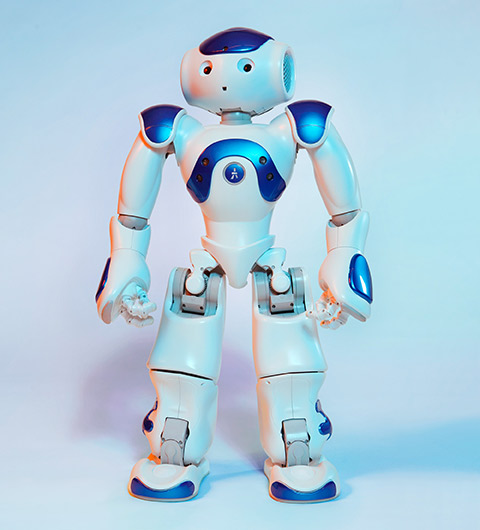This two-foot-tall robot, which can talk, sing, dance and do tai-chi, may look like a toy, but it harnesses advanced technology to serve a serious purpose.
For several months in 2016, Jennifer Stinson, a U of T nursing professor and a scientist at the Hospital for Sick Children, used the robot to test ways to reduce feelings of fear and anxiety in child cancer patients aged four to nine.
As part of their treatment, the children have to undergo a procedure that involves getting a needle. With one group of kids in the study, MEDi (the robot) sang and danced. With another group, he was programmed to narrate what was happening and provide encouragement.
“Time now for a little clean,” he says in a friendly and childlike voice, explaining the antiseptic wipe. Post-needle, he praises the child: “Do you have a superpower that makes you so brave?”
Kathryn Birnie, a psychologist on the research team, says MEDi helped both groups of kids feel less anxious, which made life easier for the nurses administering the needle – and pleased parents. MEDi is now back in the shop for some programming, but Birnie expects he’ll return to bedsides soon.






